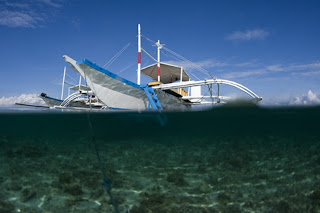
Japanese Plane Wreck

Purple Anenome

The outrigger dive bouts as seen through Snell's window

The outrigger boats - look at the anchor line!

Long nosed Hawkfish

Goby on a whip coral

Green whip coral

Orangutan Crab

Pink Scorpianfish

Pipefish

Eastern Skunk Anenomefish

Green Featherstar

baby lionfish

Long nosed Hawkfish

Panda Clown Anenomefish

Absract Anenome

Black / red featherstar

As usual there is always something i can't find in the reference books! I *think* this could be an Imperator commensal shrimp although the colouring is very different to that which is in the book! Any ideas anyone?

Dusk dappled light

2 divers in the cave mouth

Again - not really sure but it's the same one as before, just with a lower sutter speed!

3 types of coral on a Dawn dive

Coral on a Dawn dive

Diver in the cave mouth

Western clown anenomefish?

Japanese plane wreck

Erm... coral!

Short hand commensal shrimp

Western clown anenomefish

Starfish
I spent a fantastic 10 days diving from Kasai Village Resort in Cebu (Philipines) with 14 other divers (mainly DSLR photographers) lead by Martin Edge.
We had a stunning house reef to dive on as well as up to 3 boat trips (on outriggers, large enough for up to 8 people comfotably) a day and our evenings were spent either in Workshops led by Martin or critiquing our photos taken that day.
The resort is quite small with I think c20 very nice double / twin rooms set around a pool and overlooking the house reef. There is a bar and restaurant on site along with the dive centre and well equiped dive shop.
I cannot begin to explain how much I learnt over the trip, from composition (which i thought I was ok at until we started discussing contrasting colours, accessability of subjects, leading lines, surface texture to mention but a few), working with models (and Sylvia (Martin's wife) and Amanda (Shannon Conway's wife), experienced models and fantastic spotters (and photographers!!) through to the think and consider system Martin talks about in his book. The critique sessions were brilliant and gave us a real opportunity to look at what we were producing followed by the opportunity to return to the same reef / part of the reef and improve on what we'd already done.
Down time was spent in the well stocked bar with yet more opportunity to talk about photography and get some great ideas from not only the other photographers in the group but also Shannon Conway, one of Martin's proteges who is a professional photographer in his own right! I met a fantastic group of people who all shared the same passion - perfect!
I can't wait for the next opportunity to go on one of these trips, Martin is an incredibly insightful and knowledgeable chap whose encouragement and eternal optimism of your own ability is to be commended! If you get the chance to go on one of these trips then I can highly recommend them, pretty much regardless of the location! (Although I did love Kasai!)
PS I have to admit not all of these photographs are fantastically brilliant technically but i had to include many of the ones i just really liked!








































